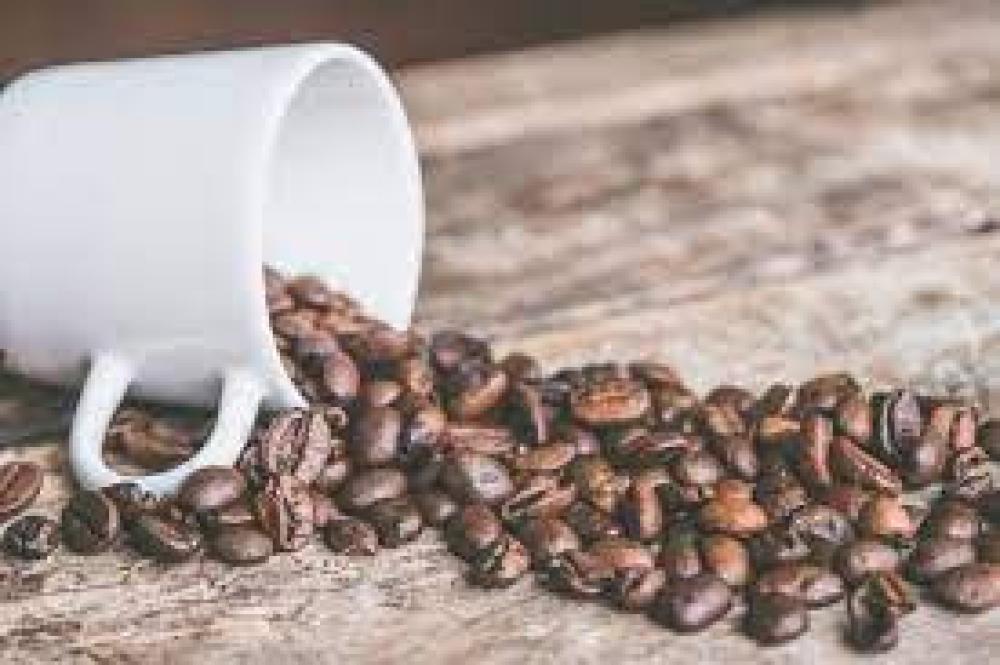In a world increasingly focused on healthy eating and daily habits, coffee stands out as one of the most widely consumed beverages worldwide, and for many, it has become an indispensable morning ritual. While we savor its flavor and enjoy its energizing effect, scientific questions arise regarding coffee's impact on health, most notably: Does coffee affect iron absorption?
Iron is an essential nutrient for human health. It is responsible for transporting oxygen through blood cells, and any imbalance in its levels can lead to health problems such as anemia, chronic fatigue, and poor concentration. Meanwhile, coffee contains compounds known as polyphenols and tannins, which are natural compounds with antioxidant properties but may interfere with the absorption of certain minerals, especially iron.
In this article, we shed light on the relationship between coffee and iron, revealing the scientific truth behind this potential effect. We'll review the evidence and research, and offer practical advice for health-conscious coffee lovers who don't have to give up their favorite cup. Should we really avoid coffee after meals? Or are there smart solutions that balance pleasure and benefit? Read on to find out the definitive answer.
Read also: Is it safe to drink coffee daily?
Does coffee affect iron absorption?
Yes, coffee affects iron absorption, especially plant-based iron found in foods such as lentils, spinach, beans, and whole grains.
Why does this happen?
Coffee contains natural compounds such as polyphenols and tannins, which have the ability to bind to iron molecules in the digestive tract, hindering its absorption within the body, especially if coffee is consumed during or immediately after a meal.
Who is most affected?
- People who follow a vegetarian diet.
- Those who suffer from iron deficiency or anemia.
- Pregnant or breastfeeding women.
- Children and adolescents.
How to avoid this negative effect?
- Wait one to two hours after eating a meal before drinking coffee.
- Enhance iron absorption by eating foods rich in vitamin C with your meal (such as oranges, tomatoes, or strawberries).
- Do not take coffee with iron supplements.
- If you suffer from severe iron deficiency, consult your doctor about the timing of your coffee consumption.
Coffee is a wonderful beverage with many benefits, but the timing of your drink plays a crucial role in maintaining your body's iron balance. Once you pay attention to the little details, you can enjoy your daily coffee without worry.
What are the benefits of iron for the body?
Iron is an essential element for the body and has many benefits. Without it, the body is susceptible to many diseases, the most prominent of which is anemia. The most prominent benefits of iron for the body's health include, but are not limited to:
1. Hemoglobin production
Iron is an essential component of hemoglobin, the protein in red blood cells that transports oxygen from the lungs to all cells in the body. A deficiency can lead to fatigue and shortness of breath.
2. Boost energy levels
Iron helps convert food into energy, so a deficiency can lead to fatigue and general weakness even with minimal effort.
3. Strengthening the immune system
Iron contributes to strengthening the body's immunity through its role in forming immune cells and fighting infections.
4. Improve concentration and brain function
Iron is essential for oxygen flow to the brain, which supports the ability to concentrate and think and reduces mental confusion.
5. Support growth and development
Iron is essential for proper growth, especially during childhood, adolescence, and pregnancy, when bodies require rapid growth and extra oxygen.
6. Maintaining muscle health
Iron is a component of myoglobin, a protein that helps muscles store and use oxygen during movement.
7. Improve the health of hair, skin, and nails.
Iron deficiency is associated with hair loss, pale skin, and weak nails. Maintaining iron levels improves overall appearance and health.
Read also: Top 7 Health Benefits of Green Tea
What is the best time to drink coffee so as not to affect iron deficiency?
The optimal time to drink coffee without affecting iron absorption is:
At least one to two hours after eating.
When coffee is consumed directly with or immediately after a meal, especially meals rich in plant-based iron (such as legumes and leafy greens), coffee compounds such as polyphenols and tannins may interfere with iron absorption and reduce it by a significant percentage, up to 40%.
- If your meal is rich in iron (such as lentils, spinach, or iron supplements), it's best to wait at least 60 to 120 minutes before having your cup of coffee.
- Alternatively, you can drink coffee between meals, not with them, to reduce the effect on iron absorption.
- It is also recommended to enhance the meal with foods rich in vitamin C (such as oranges, strawberries, or tomatoes), as they improve iron absorption and reduce the effect of coffee on it.
If you are not iron deficient and eat a balanced diet, the effect may not be significant, but it is still best to regulate the timing to avoid any future deficiency.
How much coffee is allowed to maintain iron levels in the body?
The amount of coffee allowed to maintain iron levels in the body varies depending on each person's health condition, but in general, the following recommendations can be followed:
1. For healthy people without iron deficiency:
- They can drink 2 to 3 cups of coffee a day without much concern for iron absorption, provided the coffee is not taken directly with meals.
2. For people at risk of iron deficiency or anemia:
- It is best to limit coffee to one cup per day, preferably away from meals or iron supplements.
- In some severe cases, it may be recommended to further reduce coffee intake or avoid it temporarily, as directed by your doctor.
Tips for maintaining iron while drinking coffee:
- Drink coffee one to two hours after eating.
- Do not take coffee with iron supplements.
- Be sure to take vitamin C with meals to enhance iron absorption.
- Watch for symptoms of iron deficiency (such as fatigue, paleness, hair loss) and consult your doctor if you notice any of them.
Coffee doesn't need to be "forbidden," but regulating the amount and timing is key. One to two cups per day, with the right timing, is enough to enjoy coffee without affecting your iron health.
Tips for coffee lovers to maintain iron
- Do not drink coffee with meals.
- Wait at least one to two hours after eating before drinking coffee, especially if the meal was rich in iron.
- Avoid coffee with iron supplements.
- If you take iron supplements, drink coffee at a completely different time so as not to hinder its absorption.
- Take vitamin C with a meal.
- Like orange or tomato juice, because it helps the body absorb iron better and reduces the effect of coffee.
- Choose the right time for coffee
- The best time to drink coffee is between meals or two hours after breakfast, so you can benefit from the iron in the food.
- Monitor your health if you are at risk for iron deficiency.
- If you feel constantly tired or notice pale skin, an iron test may be necessary, and you may need to temporarily cut down on coffee.
- Reduce the amount if you have anemia.
- Consume only one cup per day, and consult your doctor about the appropriate amount for your condition.
Are you a coffee lover? At Coffee Luxury , we provide you with everything you need to know about this wonderful beverage. From the best preparation methods to health tips that ensure you enjoy your favorite cup without compromising your health. Follow the Coffee Luxury blog for the latest articles and valuable information on everything related to coffee.

